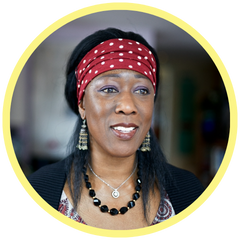TAKING YOUR MENTAL HEALTH TO HEART
Racial Prejudice: Why It Hurts
TAKING YOUR MENTAL HEALTH TO HEART
Racial Prejudice: Why It Hurts
Reviewed by Shirlette Wint, psychotherapist and social worker
You’ve surely seen videos, images, or comments on social media that talk about certain communities using hateful words, jokes, or preconceived notions about the way they look or act.
You may have told yourself that these were just minor attacks and they weren’t that serious. And yet, these offensive words can deeply hurt the people they target.
So, why do these preconceived notions hurt? How long have they been a problem? And how can we eliminate them? Let’s talk about it!

What is racial prejudice?
You probably already know, but a reminder is always helpful.
👉“Racial prejudice is a preconceived notion held by a person or a group of people that is based on the idea that certain people are inferior to them because of their race or skin colour. Mistrust, rejection, mockery, physical and verbal violence—people from diverse backgrounds suffer many injustices.”
Remember that there are no scientific, social, economic, religious, or cultural reasons to say that one race is better than another.
In fact, these preconceived notions usually stem from ignorance, a lack of curiosity about others, or fear of the unknown. They often emerge during times of social crisis, whether health-related, economic, or political, when it becomes convenient to single out certain communities to blame them for the situation.
❌The effects of these racist stereotypes are extremely negative: they promote violence and a lack of open-mindedness, and society becomes unable to evolve and progress.
Why are racist stereotypes so hurtful?
- Imagine that you work hard and get good marks, but your teacher never congratulates you and excludes you from certain extracurricular activities.
- Imagine that your classmates never ask you to be on their team for group projects at school.
- Imagine that, several times per week, the police stop you for a random check while you’re on your way home, minding your own business.
- Imagine that you can’t go shopping with your friends without a security guard trailing you.
How would you feel?
As young people from diverse backgrounds experience this time and again, they may feel constantly under threat: they have to be mindful of their own behaviour and other people’s reactions, even in “safe spaces” like school, shopping malls, parks, or public transit.
Too much worry can make some kids feel:
- sad
- discouraged
- anxious
- angry
These feelings can even lead to more serious problems like depression, eating disorders, or violence.

What should you do if you’re a victim of discrimination?
If you’re a victim of racism, speak up. Racial discrimination is unacceptable.
If you’re a victim of racism, speak up. Racial discrimination is unacceptable. Whether it happens at school, on the street, or in a store, think about surrounding yourself with witnesses who can confirm what’s happening to you. Report the situation to a trusted adult, like a teacher, nurse, or other school professional, so they can help you. Know that there are also resources available in many community and athletic centres.
If you’re 16 or over, visit the Carrefour jeunesse-emploi’s website.
If you don’t feel comfortable talking about your situation with an adult face-to-face, you can contact free, anonymous hotlines and talk to a worker who’s ready to listen:
Resources where you can get help🙅♂️Don’t give in to the temptation to resolve the situation on your own using violence. This could cause you more problems and would not help move things in the right direction.
Whatever you do, don’t keep your suffering to yourself—talk about it 🙏.
Do you sometimes have prejudices?
Do you ever hesitate to approach people who are different from you?
Can you put your finger on what’s stopping you?
- You’re scared of being rejected
- You’re afraid of being judged by your friends
- You’re shy
- You’re concerned about your reputation
Even without meaning to, we can unconsciously internalize prejudices about certain communities because of what we hear in the media, at school, or in our family. It’s important to become aware of them so they’re easier to resolve.
How can you eliminate hateful thoughts and ideas?
Here are the best ways to start:
👀 Try not to rely on your first impressions: prejudices warp reality.
🌎 Take an interest in other people’s cultures: their language, history, customs, etc.
📺 Take a step back from media that always presents certain communities in a bad light.
🙅♀️ Stop racist ideas by not repeating jokes or remarks that you hear around you.
🚩 Think about reporting all racist content on social media and not commenting on them in order to stop them from spreading.
💪 Use your voice on social media to speak up against racism and open the minds of your followers.
NEED TO TALK ABOUT HOW YOU FEEL?
Talk to a Tel-Jeunes worker: it’s anonymous, free, and available 24/7
